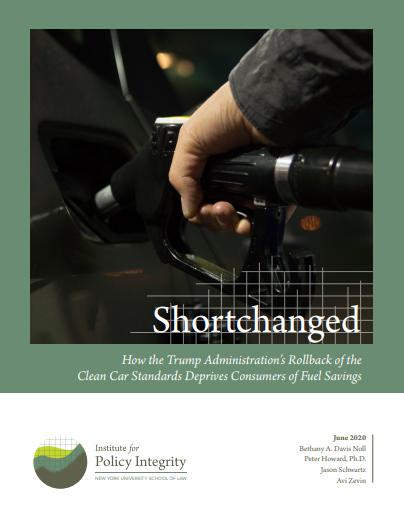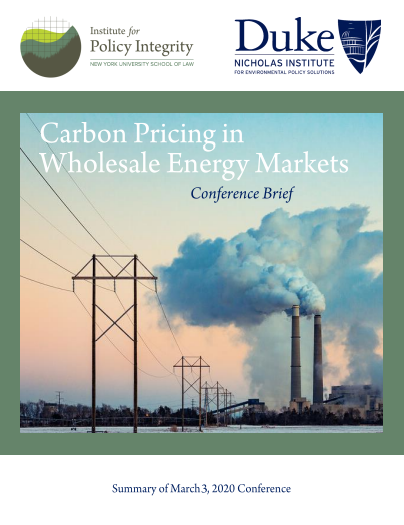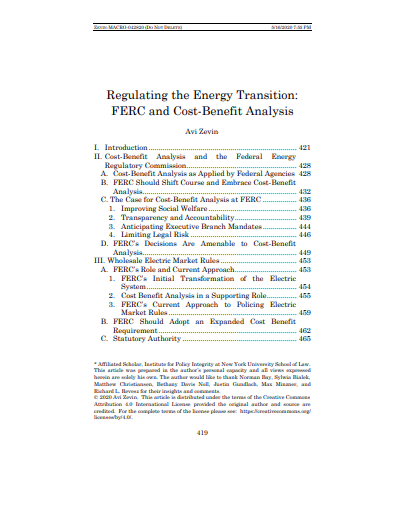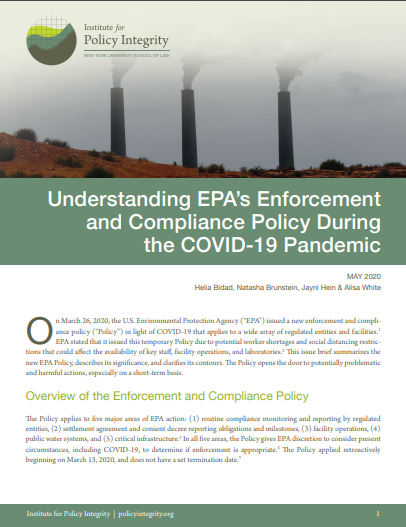-
Comments to DOE on Energy Conservation Standards for Air Conditioning and Heating Equipment
The Department of Energy requested input on impact and emissions analysis for upcoming energy conservation standards. We submitted comments encouraging DOE to continue to monetize the full climate benefits of greenhouse gas emissions reductions.
-
Comments to DOE on Energy Conservation Standards for Water Source Heat Pumps
The Department of Energy requested input on impact and emissions analysis for upcoming energy conservation standards. We submitted comments encouraging DOE to continue to monetize the full climate benefits of greenhouse gas emissions reductions.
-
Comments to EPA Science Advisory Board on Economic Analysis Guidelines
The Environmental Protection Agency’s chartered Science Advisory Board (SAB) invited the public to comment on its new draft Guidelines for Preparing Economic Analyses. We submitted multiple sets of comments covering different portions of the guidelines.
-
Comments to Colorado PUC on Valuing Distributed Energy Resources
The Colorado Public Utilities Commission (PUC) is exploring options for valuing distributed energy resources (DERs) in various contexts, including infrastructure planning, performance-based ratemaking, and others. We submitted comments identifying metrics that capture the value of DERs and suggesting how the PUC can employ those metrics to maximize benefits to the grid and society.
-
Shortchanged: How the Trump Administration’s Rollback of the Clean Car Standards Deprives Consumers of Fuel Savings
The Trump administration recently replaced the Obama administration’s strongest climate policy, the Clean Car Standards, with a significantly weaker rule. We explain how EPA and NHTSA, to justify the rollback, rely on an analytical gimmick that contravenes decades of agency practice across administrations as well as the principles of basic economics.
-
Comments to DOE on Energy Conservation Standards for General Service Lamps
The Department of Energy (DOE) requested input on how it should conduct analysis of the efficiency, economic impact, and emissions of general service fluorescent lamps and incandescent reflector lamps. We submitted comments encouraging DOE to monetize the full benefits of emissions reductions using the social cost of greenhouse gases.
-
Comments to Rhode Island on Carbon Pricing Study
Rhode Island is undertaking a study to understand what a state carbon pricing scheme would look like and how it would interact with the state’s participation in the Regional Greenhouse Gas Initiative and the Transportation and Climate Initiative. We submitted comments that support the exploration of implementing a multisectoral carbon price and recommend that the state study a scenario that uses the federal Interagency Working Group’s Social Cost of Carbon.
-
Carbon Pricing in Wholesale Energy Markets
Conference Brief
Policy Integrity and the Nicholas Institute for Environmental Policy Solutions at Duke University convened a conference on March 3, 2020, to discuss current, and potential future, approaches to carbon pricing in wholesale markets. This brief highlights some of the major points of discussion and suggests open questions for future study.
-
Regulating the Energy Transition
FERC and Cost-Benefit Analysis
This article, published in the Columbia Journal of Environmental Law, argues that, FERC’s management of this transition would be significantly enhanced if it embraced cost-benefit analysis—including accounting for important indirect costs and benefits such as the effect on climate change—to guide its decisionmaking. Changing course and adopting cost-benefit analysis will allow FERC to manage the energy transition while maximizing social welfare, enhancing transparency and accountability, and mitigating legal and political risk
-
Understanding EPA’s Enforcement and Compliance Policy During the COVID-19 Pandemic
This issue brief summarizes EPA's enforcement and compliance policy in light of COVID-19, describing its significance and clarifying its contours. The policy opens the door to potentially problematic and harmful actions, especially on a short-term basis.
Viewing recent projects in Climate and Energy Policy








